Anthony Albanese gets down for island fling over climate but declines Treaty of Rarotonga tango
Anthony Albanese will provide sought-after money to climate funds but is resisting Pacific calls to reduce or phase out coal exports.
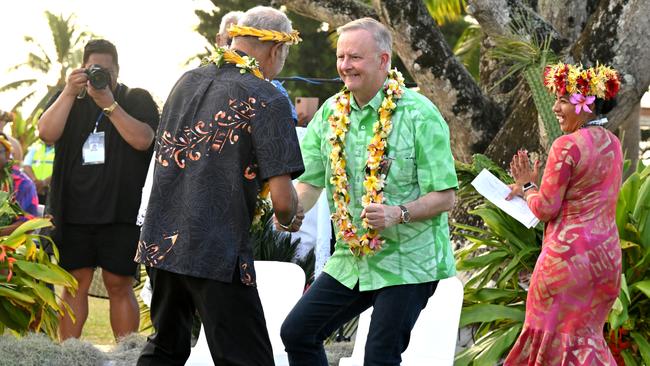
Anthony Albanese will provide sought-after money to climate funds but is resisting Pacific calls to reduce or phase out coal exports, as he warns his government’s next emissions reduction target will only be based on what is “achievable”.
The Prime Minister on Wednesday (Thursday AEDT) also pushed back against calls to revamp the historic Treaty of Rarotonga for a nuclear-free region, which could complicate the AUKUS agreement, as leaders of the Pacific Islands Forum use an overnight retreat on the low-lying island of Aitutaki to thrash out thorny issues.
In a leaders’ meeting stoush, Nauru President David Adeang and his delegation skipped the retreat after it emerged the endorsement of former Nauru president Baron Waqa to lead the forum next year would be discussed.
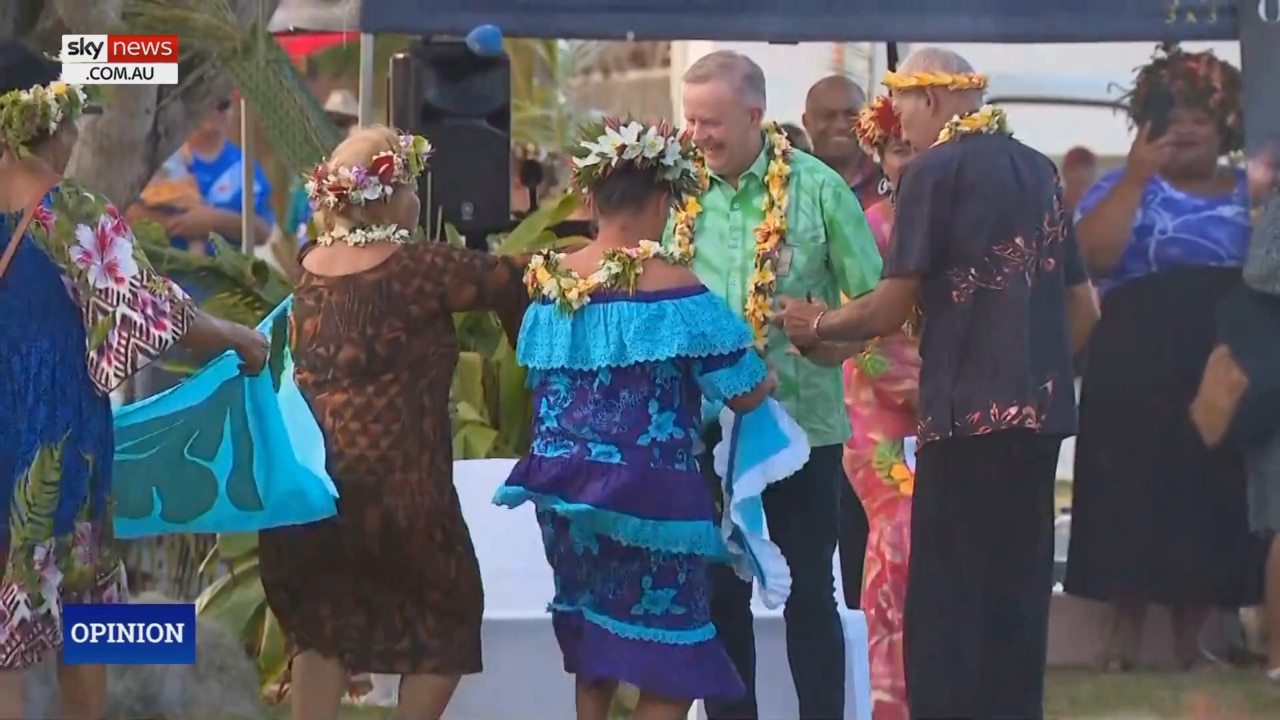
Mr Waqa, who Mr Albanese declined to say was an “appropriate” choice to take over as PIF secretary-general, is considered a controversial figure because of his track record on sacking judges, harsh restrictions on the media, banning Doctors Without Borders from treating patients in the Australian-run offshore detention centre and an Australian Federal Police bribery investigation allegedly involving him.
Keeping up with forum tradition, Mr Albanese was invited to dance and somewhat happily obliged as he was presented with a gift on Aitutaki.
Amid demands from some Pacific countries and elders to reduce or phase out fossil fuel projects and exports, Mr Albanese declared he had received “nothing but positive feedback” about Australia’s climate change policies from leaders.
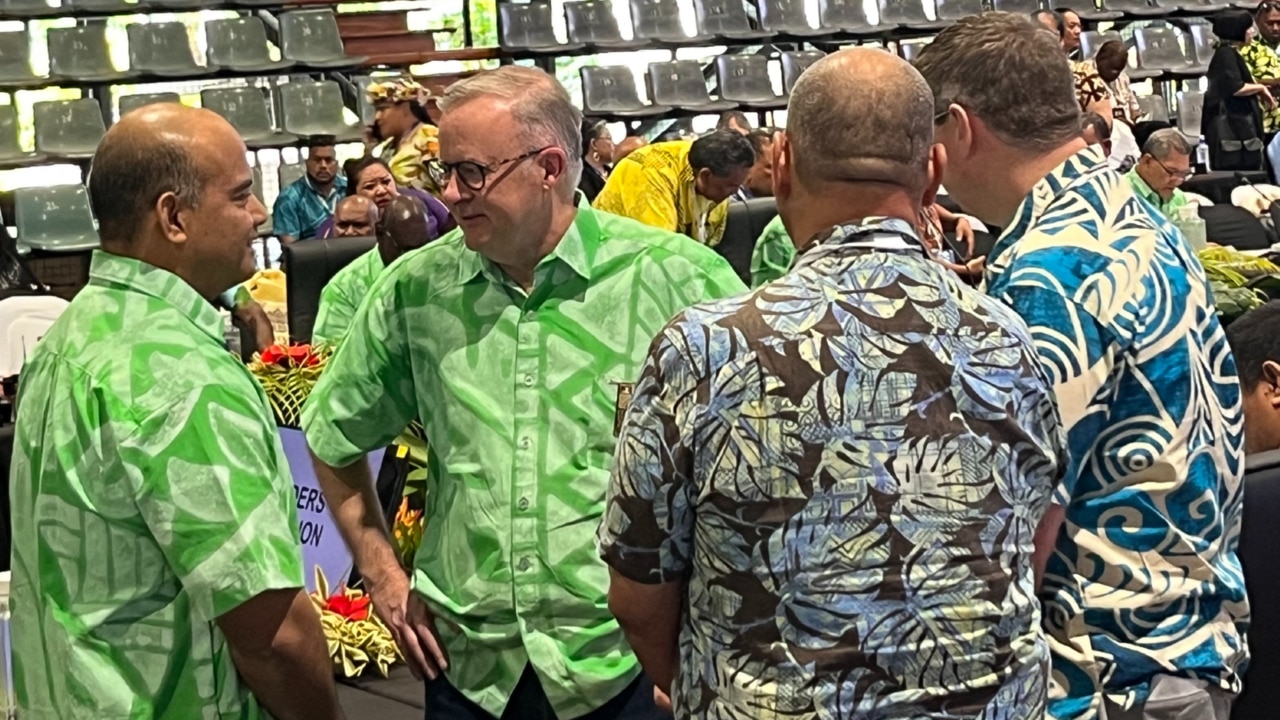
“They (Pacific leaders) have been very positive about Australia’s position when it comes to climate change,” the Prime Minister said. “There is a recognition that since the change of government, there’s been a change of Australia’s position and that we are taking the challenge of climate change seriously, not only domestically but also helping in the Pacific.”
Australia is expected to put money towards the Green Climate Fund and the Pacific Resilience Fund as it shores up the Pacific’s support for the Albanese government’s bid to co-host the UN COP31 climate conference in 2026. Mr Albanese refused to commit to announcing the 2035 emissions reduction target next year to prove Australia’s ambition but said it would be announced “at an appropriate time”.
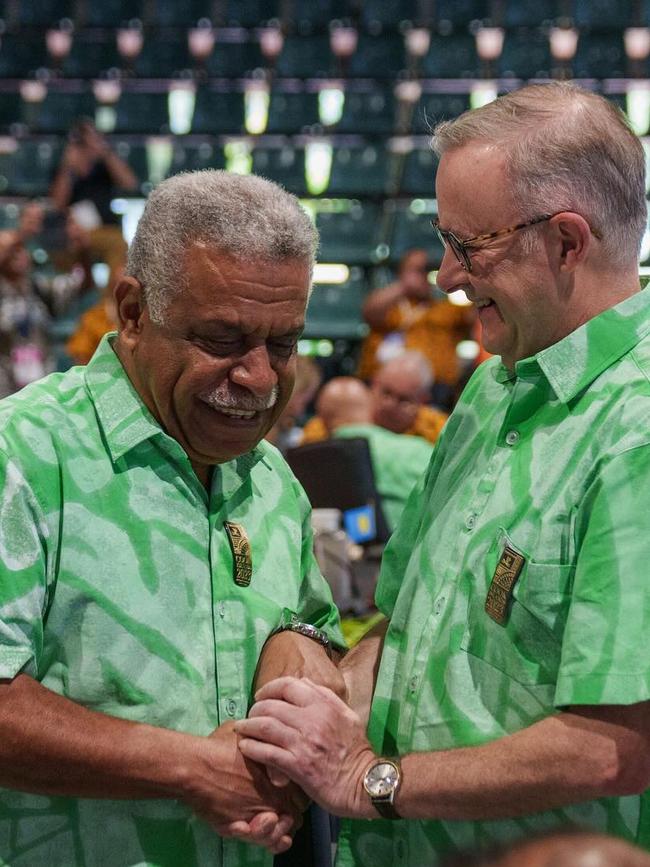
“We want to make sure that they’re based upon what is achievable,” he said. “We have a transition that’s very important for our economy. One of the things I was able to speak about at this morning’s plenary session was the transition in areas such as producing green steel and green aluminium. That will make an enormous difference. I see exciting developments in green energy, through green hydrogen in particular, but also the critical minerals and rare earths that Australia can produce that are helping the globe.
“Whether it’s here in the Pacific, or whether it be in the United States or in China, our message is the same: that we see the transition as a huge opportunity; that Australia is well positioned to make a difference for the world.”
Papua New Guinea Deputy Prime Minister John Rosso said Australia and every developed country needed to do more for climate change. “They need to … allow debt-for-nature swaps for smaller Pacific Island countries, easier accessibility to financing for smaller Pacific island nations and a lot more to be done now and not down the track,” he said. That’s for every development partner.”
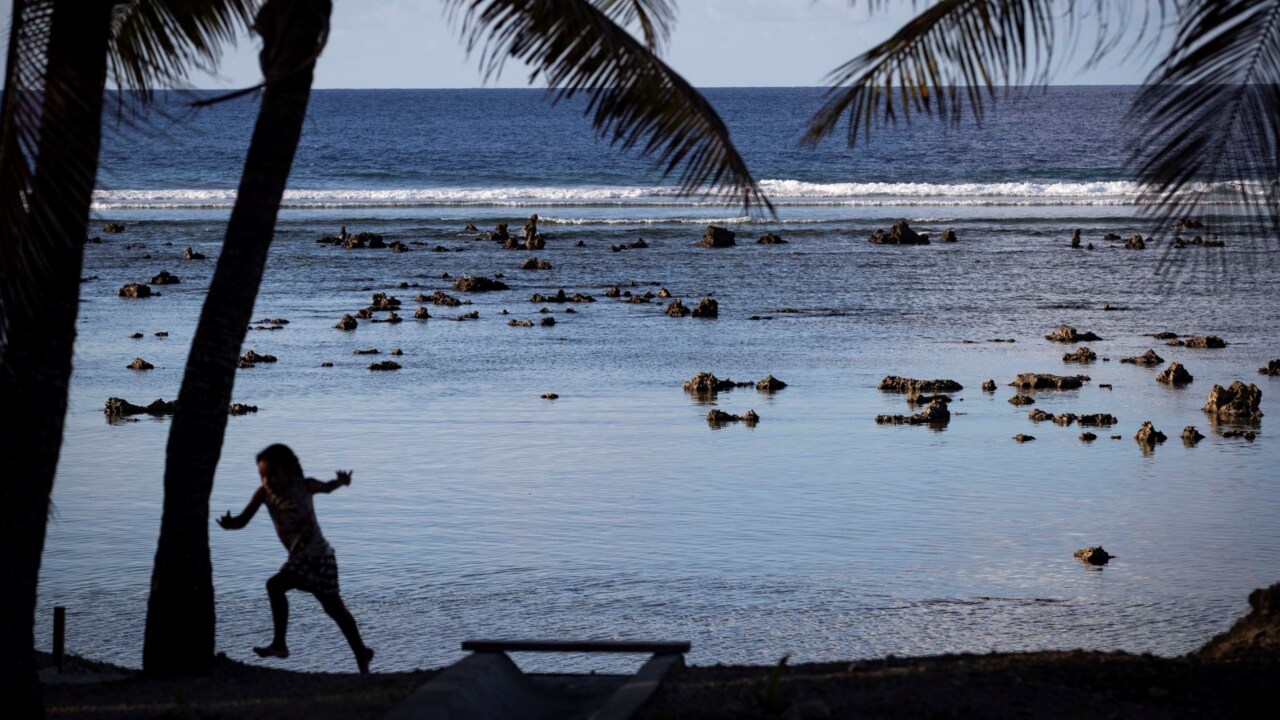
Debt-for-nature swaps allow a developing nation to reduce its debt burden in exchange for environmental commitments from that country.
Mr Rosso also said the Albanese government had promised to help advance rugby-league loving PNG’s aspirations for a national team, which would be open to players from across the Pacific.
Fijian Prime Minister Sitiveni Rabuka said there would not be a challenge against the Albanese government’s action on climate change at the leaders’ retreat and his country’s position “harmonised” with Australia’s. “It is a program … that decreases the use of fossil fuel,” Mr Rabuka said. “It’s based on our needs, their (Australia’s) needs and our ability to do adapt.”
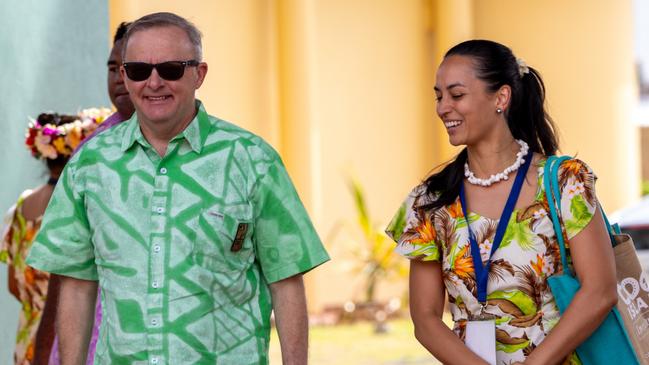
Tongan Prime Minister Hu’akavameiliku said Pacific leaders wanted to discuss Australia’s fossil fuel projects in the retreat but financial contributions from the Albanese government would be “great” to kickstart the Pacific Resilience Facility, which was approved by forum leaders on Wednesday to help vulnerable people exposed to climate change and disaster risks.
Signalling he didn’t believe the Treaty of Rarotonga needed to be revitalised, Mr Albanese said: “It is a good document, it has stood the test of time. All of the arrangements that we have put in place have been consistent with that.”
Earlier this week, Cook Islands Prime Minister and forum chair Mark Brown said smaller Pacific Islands countries were concerned about several nuclear issues, such as increased surveillance by nuclear-powered submarines through the Pacific under the AUKUS pact.
Signatories of the Treaty of Rarotonga – including Australia – must not manufacture, possess, acquire or have control of nuclear weapons but Mr Brown said it was now appropriate “we should discover and revisit our Rarotonga treaty to ensure that it reflects the concerns of Pacific countries today”.




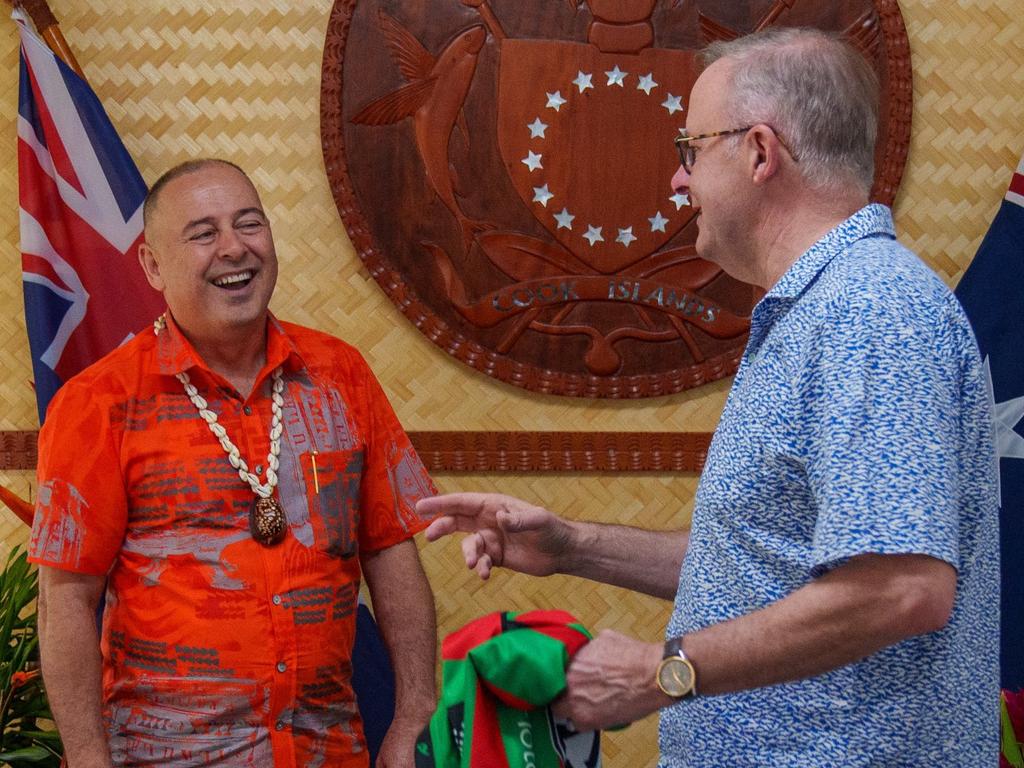
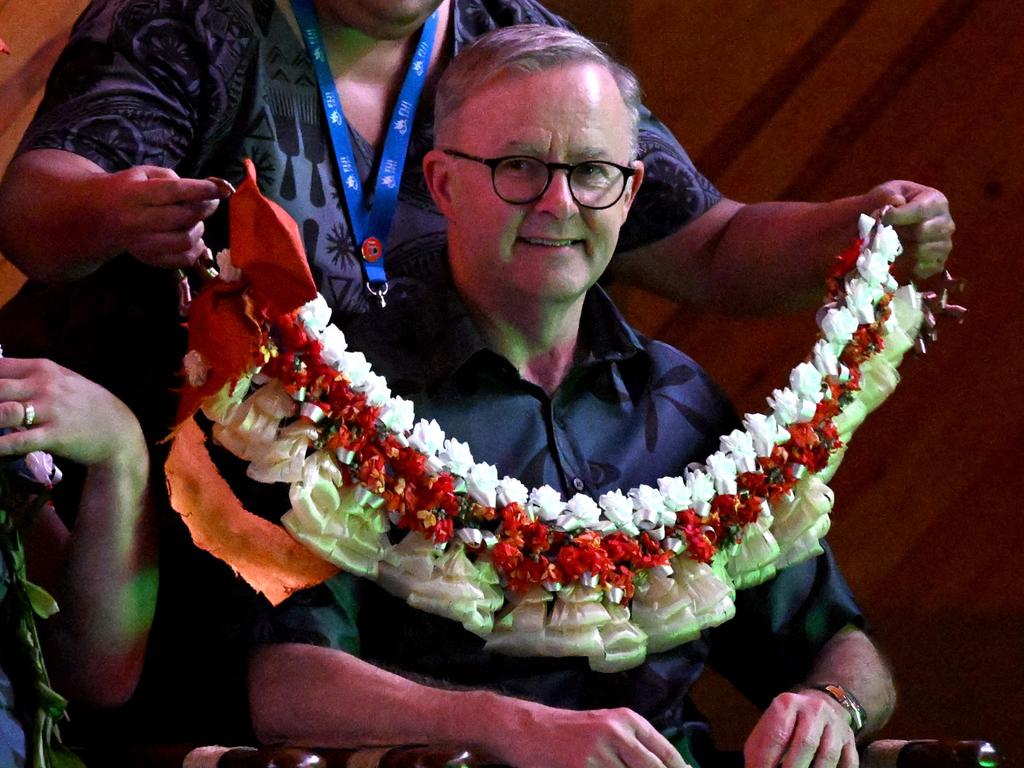

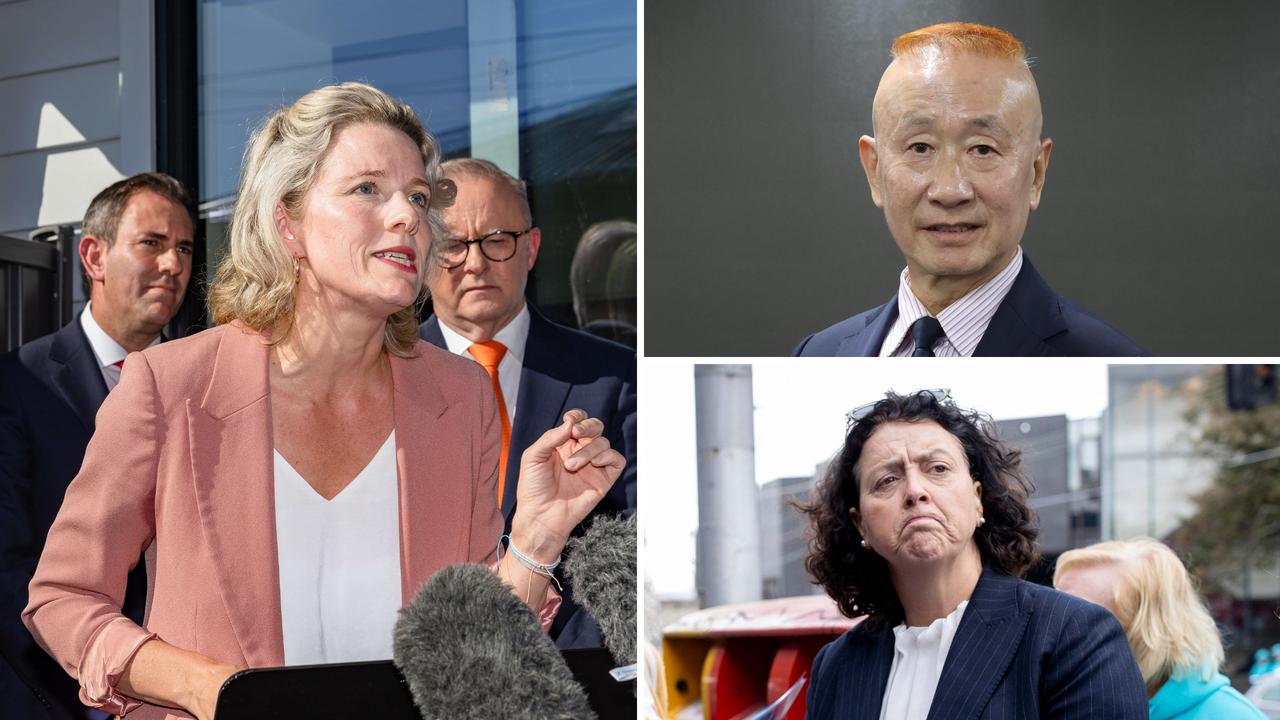
To join the conversation, please log in. Don't have an account? Register
Join the conversation, you are commenting as Logout